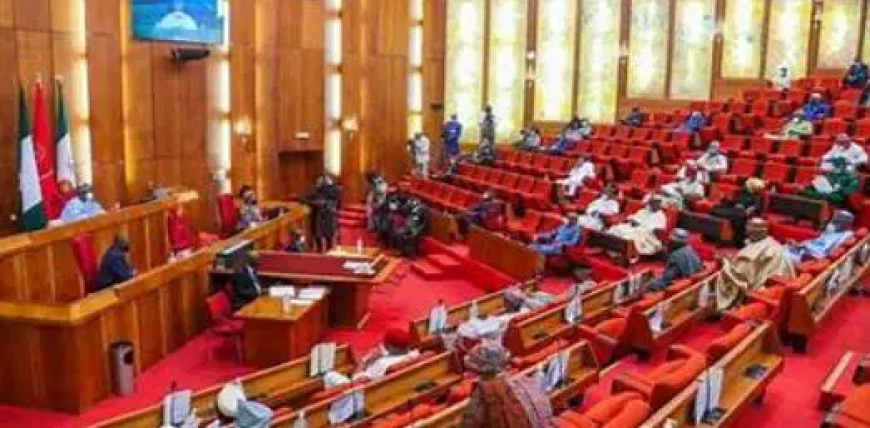Senate approves 14-year jail term for sexual harassment in educational institutions

ABUJA — The Senate has approved a penalty of up to 14 years’ imprisonment, with a minimum sentence of five years and no option of fine, for educators convicted of sexually harassing students in tertiary institutions across Nigeria.
The upper chamber, on Wednesday, passed the Sexual Harassment of Students (Prevention and Prohibition) Bill, 2025 (HB.1597) after it scaled third reading. The bill was presented for concurrence by the Senate Leader, Senator Opeyemi Bamidele (APC, Ekiti Central).
Senator Bamidele said the legislation seeks to protect students from all forms of sexual misconduct in academic environments by providing a clear legal framework for enforcement and punishment. It also aims to uphold ethical standards in tertiary institutions and safeguard the fiduciary relationship of trust between students and educators.
Key Penalties
According to the bill:
Offences under Clauses 4(1), (2), and (3) carry up to 14 years’ imprisonment, but not less than 5 years, with no option of fine.
Offences under Clauses 4(4), (5), and (6) attract up to 5 years’ imprisonment, but not less than 2 years, also without an option of fine.
Civil Action and Institutional Discipline
The bill affirms the right of students to pursue civil action against educators for breach of fiduciary duty.
Once criminal proceedings are initiated, institutions cannot conduct parallel disciplinary proceedings until the court process is concluded.
Institutional Independent Sexual Harassment Prohibition Committees must investigate and decide on complaints in line with the provisions of the bill, superseding existing internal policies.
Definition of Offences
The bill outlines various acts that constitute sexual harassment by an educator, including:
Having sexual intercourse with a student or demanding sex
Intimidating or creating a hostile environment by soliciting sexual favours
Unwanted touching, grabbing, hugging, or kissing
Sending sexually explicit pictures, videos, or objects
Making sexual jokes or comments about a student’s body
Stalking a student
The bill specifies that:
Consent of the student is not a defence
The only defence is if the educator and the student are legally married
Intent is not required to be proven for conviction
Commencement of Criminal Proceedings
A sexual harassment complaint may be filed by:
The affected student
A representative (relative, guardian, lawyer)
Any person with interest in the student’s welfare
Complaints can be submitted to the Nigeria Police Force or the Attorney General, with copies forwarded to the institution’s Independent Sexual Harassment Committee.
Senators Call for Broader Coverage
During deliberations, Senator Adams Oshiomhole (APC, Edo North) argued that the bill should extend beyond educational institutions, noting:
“There is no need to restrict sexual harassment issues to students. We should craft this law in a way that gives it universal application.”
Deputy Senate President Barau Jibrin (APC, Kano North), who presided, clarified that because the legislation came as a concurrence bill from the House of Representatives, the Senate could only amend, not overhaul it. He added that existing laws already address harassment in workplaces and public institutions.
Following brief debates, the Senate approved the bill, moving it one step closer to becoming law.

 admin
admin 


